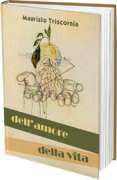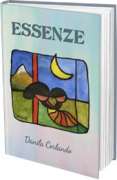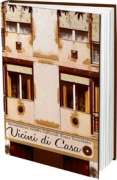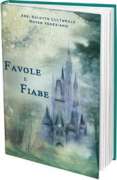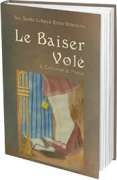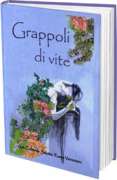Scritto da © Carlo Gabbi - Gio, 12/03/2015 - 00:55
Part Four
My two years contract in Brazil would soon be finished. I would have to return to Australia, back home to Clare, my wife, sometime in February.
Clare was quite a beautiful woman, but I had to admit that I’d not missed her very much. She was such a contrast to the Brazilians. She was blond, tall, calculated, and cold blooded in nature. In her life she planned everything well in advance.
I’d never seen her once making an on the spot decision. She wouldn’t ever grab an opportunity, even if it was served on a silver platter, for the simple reason that she hadn’t analyzed and programmed it in advance. In our marital life she even timetabled the day to make love and the most suitable time for it. That was the reason why she got on my nerves so often. How many times had she refused the marital joy of making love? Too many I suppose. She never responded to my sexual desires saying dramatically and with a hint of irony in her voice, ’I haven’t got time for that now. I must be at the beauty salon within half an hour…’
Our marriage took second place in her life. She always had an excuse ready to disassociate herself from such obligation.
I found that she also had an aversion for mixed blood people. She believe that the ‘half cast’, as she call them, were quite inferiors to the ‘real blues’, her expression to qualify people belonging to the Celtic culture, tall, blonde with blue eyes.
That has always been my problem with her. She had never wanted to follow me to ‘exotic countries’, as she called the rest of the world that wasn’t directly connected with those northern colonies.
She had most likely been influenced by her mother’s strict upbringing, which gave her the old puritanical fashion in vogue in the Victorian times.
This is what I was facing by returning home.
I made several phone calls to her mentioning my imminent return to Australia. She didn’t comment one way or the other, and I wasn’t sure if she was happy to see me back home. Knowing her, I believed she preferred to indefinitely carry on our life the way it was, separated by thousand of miles.
In her unspoken message she told me, Yes, I like to be married to you. You are a wonderful provider of my needs. I have plenty of money to spend, and a magnificent home facing the Pacific Ocean to live in. That is what I want from you. Oh, I’m forgetting my dear, I also love the fact that you are always so far away, so I don’t need to worry about a family and some impossible kids in my way. I don’t have to pretend and I can enjoy my life at the golf club, and be entertained by the many friends I have. With you, thousands of miles away, our relationship runs wonderfully.
I believe that was her idea of the perfect marriage, without hassles and free of quarrels. Many times I suspected that she manipulated her father, an executive of the corporation where I’m employed, to offer me the well remunerated distant contracts, so that I wouldn’t disturb her beautiful independent life.
With these doubts in mind, I admit I had cold feet in returning home. Apart from this I was enjoying my life in Brazil, which gave me a more contrasting easier life with the friendliness of these people.
It was on those days that I made a promise to myself to return one day to live in the land of sambas and magnificent lovers. When I’ll come back I’ll spend time visiting the inland provinces and I want to reach the Amazon forest. While there, I would like to fossick for emeralds which are plentiful in that part of Brazil and are the largest in the world.
I also want to get in touch with the real Brazilians, the ones that had created the myths of the sambas and who divine the cult of the Macamba, those folklorist celebrations full of African mystery.
It was during my last weeks in Rio that I had the opportunity to learn more about the Macamba powers. It was casual and unexpected.
During the weekend evenings, in Copacabana, on that pedestrian strip between the beach and the main road, there were hundreds of stalls selling crafts, characteristic of Brazil. This place was always crowded with locals and tourists who came from nearby districts, after the theatres and cinemas closed. The late evening was the best time for anybody to enjoy a stroll on the promenade with the fresh breeze coming from the Atlantic.
I always enjoyed my nocturnal wanders around Copacabana. There was so much to see and so much to indulge in, particularly in those evenings, wondering around the stalls searching through those simple art-and-crafts that certainly were well appreciated in such a distant place as Australia.
Well it was there that I found the souvenir I wanted to take home with me, having the brio and the color of Brazil. Under a tent hung several paintings, representing the country and colors of Brazil in vivid reds, blues and greens. They were the dominating silhouetted figures of drummers, beating frantically on their tambourines, and dancers, exposing their glorious bodies covered only by tiny bikinis. The breasts of the dancers, well erected, pointed to the sky with the dark nipples flicked in silver and adorned with feathers. The vividness of the movements in the painting were evident, accentuated by the position of their bodies, and the tall plumed decoration on their heads. In them I could see the movement of life and I could smell the sweating of the bodies dancing in the villages, intoxicated with the sweet smell of the rum, mixed with the sultry sweat of dancers and drummers. I admired the southern constellations painted in the sky above, and I could read the mysticism of their Macambas. Yes, those dancers were representing the priestess propitiating the oncoming festivity, and inviting the other villagers into the dancing arena.
Those, who don’t know the Brazilian villages, could easily mistake them as African villages as seen in old drawings of explorers of the dark Africa of the past, and transported magically over these canvasses in front of me, representing life in this equatorial towns of Brazil.
My eyes were glued there as I kept looking at these vivid acrylics. It was so real. Looking at them I was part of that life, presented with ingenuity and realism. I could see the real Brazil, the one I’d like to discover one day when I returned to this country of contrast.
Then a young man, not quite thirty came to me. He was wearing conventional European clothes, but he looked like a character from the paintings that I was still admiring,
‘Are you the artist?’ I asked him.
‘Yes. What you see in these canvasses is my village and my people, and they represent the real life of the people of the bush.’
‘You speak English well. Where did you learn it?’
‘I spent nearly one year in Los Angeles, and I sold quite a few of my paintings there. But the United States is not my style of life. I ran away and returned to Brazil. Americans don’t know how to enjoy life. There, in the States, everything relates to money. They only think of how much they can buy with the dollars they have. They don’t know how to enjoy life with good women, good sambas, and good food. They are the unhappiest people in the word.’
‘I understand your point. There is much truth in what you say.’
‘Yes, people like me, the true Brazilians that live in the country are very poor, but we happily live our lives. I will never be capable of understanding the necessity of such luxuries of the American culture.’
‘Is your name Paulo? I can see all your works signed with that name. The life of your village springs out of your canvases. I would like to be able to visit and be part of that country life.’
‘Why don’t you come over for the next Carnavale? It’s only three months away. In my village you will breathe the real Brazilian life and you’ll be part of the genuine celebrations. Here in Rio, it is corrupted and arranged for the benefit of the many tourists that come from all around the world. But they bring good money to Brazil. If you wish to come, you can stay in my house. It’s modest, but my mother and my sisters will look after you. You will be part of my family.’
‘I will be back in Australia by then. But I’ll accept for the next time around. Before I go away, I want to buy some of your canvases to take back with me. Will you be here tomorrow evening?’
‘I have more paintings at home, and those are for my special clients. Why don’t you come over to my place tomorrow afternoon? We can talk of different things. I see you are basically a country person like us and you really love Brazil.’
He scribbled his Brazilian address on the back of one of his cards. The front of his card displayed a Los Angeles address.
‘It’s the address of the Gallery that sponsored me there. But come early in the afternoon. I think we can talk of many common interests’
»
- Blog di Carlo Gabbi
- 3002 letture

 Sostieni anche tu il nostro sito
Sostieni anche tu il nostro sito
 le nostre pubblicazioni
le nostre pubblicazioni 




